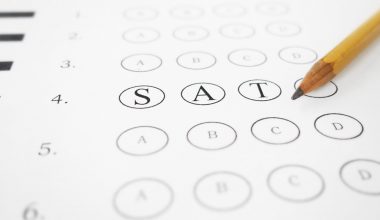The importance of revision while preparing for exams cannot be overemphasized. They are often the bridges you must cross to attain success and there are revision techniques one must employ to achieve this.
In this article, we will holistically look at all these techniques, with the hope that you find the Revision Techniques that best suit your style and time.
We will also explain the importance of revision and revision techniques and why you should employ them.
Table of contents
- What is the Importance of Revision?
- Top 15 Revision Techniques to Explore in 2024
- 1. Active Recall
- 2. Spacing Out Repeats
- 3. Mind maps
- 4. The Pomodoro Method
- 5. Increasing Learning Through Interleaved Practice
- 6. Double Coding
- 7. In-depth Interrogation
- 8. Self-Explanation
- 9. Recovery Techniques
- 10. Using Mnemonic Devices to Help with Recall
- 11. Using Chunking to Manage Information
- 12. Anki Flashcards
- 13. Teamwork in Education
- 14. Visualization Tools
- 15. Guidance to Others
- FAQs
- Conclusion
- References
- Recommendations
What is the Importance of Revision?
As we approach the exam season students thoughts should turn to revision. What is revision and what is the importance of revision? According to the Collins English Dictionary, revision means ‘to read things again’.
This implies that you have read and understood your study material at least once before starting revision. So if you haven’t you need to get a move on ’cause time is running out!
The importance of revision is twofold. Firstly, it helps you to remember facts, figures, topics, and methodologies that you covered some time ago. Secondly, If done correctly it will help increase your confidence and reduce anxiety – you will be well-prepared for your examination.
Top 15 Revision Techniques to Explore in 2024
Here are 15 revision techniques to explore:
1. Active Recall
Active recall is a powerful revision technique beyond simply re-reading notes or textbooks. Instead, it involves actively retrieving information from memory and testing oneself on the material.
This method has significantly enhanced learning and retention, making it an invaluable tool for students looking to maximize their study time.
One of the key advantages of active recall is that it forces you to engage with the material rather than passively consuming it.
By actively retrieving information from memory, you are reinforcing neural connections related to that particular topic, making it easier to recall in the future.
Additionally, active recall helps you identify areas where your understanding may be weak or incomplete, allowing you to focus on those areas during revision.
Read Also: Top 15 Websites for GCSE Revision in 2024 with Answers
2. Spacing Out Repeats
Spacing out repeats is one of the most influential and often overlooked revision techniques. While many students tend to cram their study material all at once, research suggests that spacing out your learning sessions can lead to better retention and comprehension.
Rather than reviewing your notes or course material in one marathon session, breaking it into smaller, spaced intervals allows for a deeper understanding of the content.
Spacing out repeats leverages the psychological principle known as the spacing effect. This phenomenon suggests that we retain information more effectively when presented repeatedly over time, with gaps between each repetition.
Spacing out your learning sessions gives your brain time to process and consolidate what you’ve learned before revisiting it.
This helps reinforce knowledge and strengthens memory recall, improving performance on exams or assignments.
Read Also: 15 A-Level & GCSEs Revision Techniques (That Actually Work)
3. Mind maps
Mind maps are a powerful and adaptable tool that can completely change how you approach editing.
Also, Mind maps, as opposed to conventional linear note-taking techniques, let you record and arrange information in a visual and non-linear manner. Mind maps give a comprehensive picture of the subject by establishing a central topic or theme and branching out with relevant subtopics.
One of the main advantages of using mind maps for revision is their potential to inspire creativity and engagement with the content. As you make a mind map, you actively connect thoughts, make relationships, and see patterns.
This not only encourages greater comprehension but also improves memory retention. Mind mapping activates both brain hemispheres while preserving logical organization and allowing you to access your creative side.
4. The Pomodoro Method
Utilizing the Pomodoro Technique to Improve Focus.
Francesco Cirillo created the Pomodoro Technique in the late 1980s. It has become a well-liked time management technique and a useful revising strategy for students.
The Pomodoro Method’s central idea is to work in small bursts of concentrated effort, often 25 minutes, followed by a rest of about five minutes. This organization keeps your brain active and from fatigue during lengthy study sessions.
Utilizing the Pomodoro Method for revision can improve focus and minimize distractions. Setting a timer for each study session generates a sense of urgency and drives you to stay on track.
Using this strategy, you can prevent being distracted by social media updates or other temptations that might divert your attention.
5. Increasing Learning Through Interleaved Practice
During study sessions, interleaved practice involves combining various subjects or topics. This method forces your brain to make distinctions between concepts, which promotes greater comprehension and memory.
Read Also: How To Make A-Level Revision Timetable (That Actually Works)
6. Double Coding
Dual Coding for Memory Enhancement
Double coding is one of the best revision techniques for producing two study materials. It can effectively aid in knowledge retention and a greater understanding of ideas.
You are pushed to examine and synthesize the material by compressing it into brief notes, which improves your comprehension and recall.
Using visuals as code is one technique to double code. This could entail drawing mental maps, diagrams, or flowcharts to illustrate essential ideas or connections between concepts.
By arranging the data graphically, you activate several brain regions and make it simpler to recall the specifics afterwards.
7. In-depth Interrogation
Understanding Through Detailed Interrogation
In-depth interrogation is one of the best revising strategies to investigate. This approach entails deeply probing the minutiae and specifics of the studied content while carefully questioning and analyzing it.
This method motivates students to interact actively with the subject rather than skimming surface-level knowledge.
In-depth questioning can be especially useful for courses like science or history that require a broad knowledge base or a deep comprehension.
By challenging every facet of a concept or idea, students are forced to understand the content rather than memorize it.
This method helps students apply their knowledge to real-world circumstances by encouraging critical thinking and problem-solving abilities.
Read Also: How Many Hours of Revision A Day For A Levels
8. Self-Explanation
Concept Clarification via Self-Explanation.
Self-explanation is a potent revision strategy that merits additional investigation. Strengthen knowledge and improving recall entails expressing ideas or information to oneself.
This method includes active participation and the verbalization of one’s thoughts. Thus, it goes beyond simply reviewing or summarizing notes.
Self-explanation works because it makes people explain what they understand in their terms, which is one of its many benefits.
They can spot any understanding gaps and correct any misunderstandings by doing this. Additionally, voicing ideas stimulates various brain regions, which helps improve memory recall.
9. Recovery Techniques
Memory Enhancement with Retrieval Practice
The conventional methods of summarizing notes or rereading textbooks can frequently feel stale and useless when preparing and revising for tests.
However, using recovery approaches as revision strategies might provide a novel viewpoint that stimulates the mind and improves memory retention.
One of these strategies is “active recovery,” in which, rather than merely taking a break from studying, you engage in physical activity or mindfulness activities that assist the brain in unwinding while keeping it engaged.
Exercise or meditation during study breaks has been proven to boost focus and memory, making it a valuable strategy for making the most of review time.
10. Using Mnemonic Devices to Help with Recall
Memory enhancers, known as mnemonics, use associations or patterns to help people remember information. This method can be beneficial for remembering lists, sequences, or complex concepts.
11. Using Chunking to Manage Information
Chunking is the process of dividing complicated information into more manageable pieces. This method improves working memory capacity and facilitates information assimilation and retention.
Read Also: Top 15 Websites for GCSE Revision in 2024 with Answers
12. Anki Flashcards
Concept Mastery with Anki Flashcards
Anki Flashcards has become a potent and effective review tool every student should investigate. In contrast to conventional flashcards, Anki Flashcards employ the spaced repetition method founded on memory retention research.
This implies that a flashcard will appear in your deck less frequently the more you examine it. In other words, Anki adjusts to how you study best and concentrates more on the complex subject.
One of Anki Flashcards’ main benefits is its adaptability. It can be used to revise any subject or topic imaginable, from vocabulary in a language to intricate scientific theories. Anki also provides a multi-modal learning environment, allowing learners to add photos and audio files to their cards.
13. Teamwork in Education
Learning Together Through Joint Research
Collaborative learning entails group or peer learning. This method promotes dialogue, disagreement, and various viewpoints, resulting in a deeper comprehension of the subject.
14. Visualization Tools
Understanding Better Through Visualization
When revising and studying, we often rely on traditional methods such as making notes or highlighting important information. However, another powerful technique can enhance our revision process: visualization tools.
Visualization allows us to create mental images and diagrams that help us understand and remember complex concepts.
One effective tool for visualization is mind mapping. Using a mind map, you can organize your thoughts visually and connect different ideas.
This technique not only aids in understanding the material but also helps to recall information more quickly during exams.
Another useful visualization tool is concept mapping. Unlike mind maps centred around a central idea, concept maps focus on linking related concepts in a hierarchical structure.
This method helps you see the bigger picture by identifying the relationships between different topics or subjects within your course materials. By visualizing these connections, you can effectively summarize and condense large amounts of information into simple yet comprehensive diagrams.
15. Guidance to Others
Adding to Knowledge by Passing It On
As students, we frequently look for efficient revising methods to enhance our educational experience. No one way works for everyone, but it might be helpful to investigate various approaches that meet our unique learning styles and preferences.
The Cornell note-taking system is one method to consider because it promotes active listening during lectures by segmenting notes into major cues and summaries. This approach simplifies revising later by encouraging understanding and memory of the material.
Another editing strategy that could be helpful is using mnemonic devices. By using associations or patterns, mnemonics help people remember information more quickly.
Read Also: How to Appeal A Level Results – Process Explained
FAQs
These revising strategies were carefully created to maximize your study time. They stimulate various cognitive functions, boost memory retention, encourage greater comprehension, and ultimately help students do better in school.
Absolutely! Combining various methods can increase the potency of those methods. For instance, combining active recall with spaced repetition can have significant effects since both strategies approach memory preservation in distinct ways.
These methods are adaptable and may be used in various fields and disciplines. These revision strategies can improve your learning, whether you’re studying math, history, physics, or a foreign language.
Conclusion
This article’s top 15 revision techniques provide valuable strategies for students and professionals to enhance their learning and productivity.
These techniques offer practical and effective ways to retain information and boost comprehension, from creating a study schedule to utilizing mnemonic devices.
It is important to note that different techniques may work better for different individuals, so it is essential to experiment and find the methods that best suit one’s learning style.
By incorporating these strategies into their revision routine, readers can optimize their study sessions and achieve tremendous success in their academic or professional pursuits.
References
Recommendations
- Last-Minute GCSE Revision Tips| Score Higher In Last Minute
- GCSE Revision Plan: How To Position Yourself For Greatness
- Top 10 Best GCSE Maths Revision Websites | 2024 Ranking
- How to Easily Tackle 11 Plus Exam Revision with Your Child in 2024
- How To Use Mind Maps Effectively for Revision While Studying






